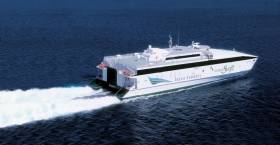Displaying items by tag: Storm Ewan
Storm Ewan Disrupts Sunday Ferry Sailings On Irish Sea
#StormEwan - Hot on the heels of last week’s Storm Doris, there is further ferry disruption today (Sunday 26 February) as Storm Ewan brings strong gusts to the East Coast.
Irish Ferries has cancelled its 8.45am and 2.30pm sailings from Dublin to Holyhead, as well as its 11.50am and 5.15pm return trips, all on the Swift, due to the adverse weather conditions forecast for the Irish Sea.
Met Éireann has issued a Status Orange national weather warning and gale warning as south to southwest winds are expected to reach Force 8-9 with storm force gusts on coasts from Malin Head to Carnsore Point to Valentia and on the Irish Sea.
Small craft are also warned as west to southwest winds will reach Force 6 or higher from Valentia to Slyne Head to Malin Head.
The most damaging gusts of up to 120kmh are expected along southern coasts, with a wind warning issued for Wexford, Cork, Kerry and Waterford until early this afternoon.
A Status Yellow warning is in place over mean wind speeds upwards of 50kmh and gusts of up to 110km in all other coastal and some Midlands counties in Leinster.





























































